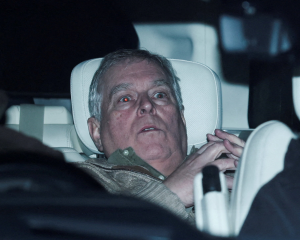
A week after he took power, Johnson's office made no mention of Brexit in a statement overnight announcing plans for his visit to the province on Wednesday, the only part of Britain to share a land border with the rest of the EU.
His visit is part of a charm offensive, with the new leader trying to sell Brexit, something he has said his predecessor, Theresa May, and her government failed to do while in office.
The bloc insists on a "backstop", an insurance policy to prevent border controls by requiring Britain to obey some EU rules in case both sides fail to agree a later trade deal.
Johnson rejects that demand as "undemocratic" and says Britain will leave the EU with no deal at all unless the EU drops it. He says technology can ensure a friction-free border even if Britain adopts separate customs and regulatory rules.
Northern Ireland voted to stay in the European Union in 2006 when the rest of Britain voted to leave. A Northern Irish political party, the Democratic Unionists (DUP), props up the minority government of Johnson's Conservative Party.
A DUP source said Johnson arrived in Belfast on Tuesday evening and held a "political meeting" with party leader Arlene Foster, Nigel Dodds, the deputy leader, and another senior lawmaker Jeffrey Donaldson.
Johnson's office said on Wednesday he will call for Northern Ireland's suspended power-sharing executive, a critical part of the 1998 Good Friday peace agreement that ended 30 years of conflict, to be restored as soon as possible.
The power-sharing administration was suspended two-and-a-half years ago because of differences between the parties representing mainly Protestant pro-British unionists and mainly Catholic nationalists who favour a united Ireland.
"The people of Northern Ireland have now been without an executive and assembly for two years and six months - put simply this is much, much too long," said Johnson, who will meet the leaders of the province's five major parties.
"Northern Ireland’s citizens need and deserve the Executive to get up and running again as soon as possible, so that locally-accountable politicians can take decisions on the issues that really matter to local people."
The Good Friday agreement dismantled all physical border infrastructure, guaranteeing that people and goods on either side can move freely.
Johnson promised on Tuesday to lead Britain out of the European Union on October 31 "no matter what", after speaking to Irish prime minister Leo Varadkar.
That hardline message sent sterling tumbling as financial markets concerns of a disorderly no-deal Brexit grow.
The Irish government repeated the EU's stance that it would not reopen the divorce agreement and that no other alternative to the backstop had yet been identified.
BREXIT GOOD FOR FARMERS: PM
Ahead of a visit to Wales on Tuesday, Johnson said farmers would get a better deal after Brexit, part of a countrywide tour to win support for his "do or die" pledge to leave the EU.
"I will always back Britain's great farmers and as we leave the EU we need to make sure that Brexit works for them," he said.
"Once we leave the EU on 31st October, we will have a historic opportunity to introduce new schemes to support farming - and we will make sure that farmers get a better deal. Brexit presents enormous opportunities for our country and it's time we looked to the future with pride and optimism."
Many farmers fear a no-deal Brexit could threaten their livelihoods by suddenly removing subsidies, blocking their access to European markets and leaving them vulnerable to competition from lower-cost producers like the United States that do not match European animal welfare standards.
Johnson said leaving the EU would allow the government to scrap the Common Agricultural Policy - a system of farm subsidies unpopular in Britain which contributes more than it receives - and sign new trade deals to expand the market.











